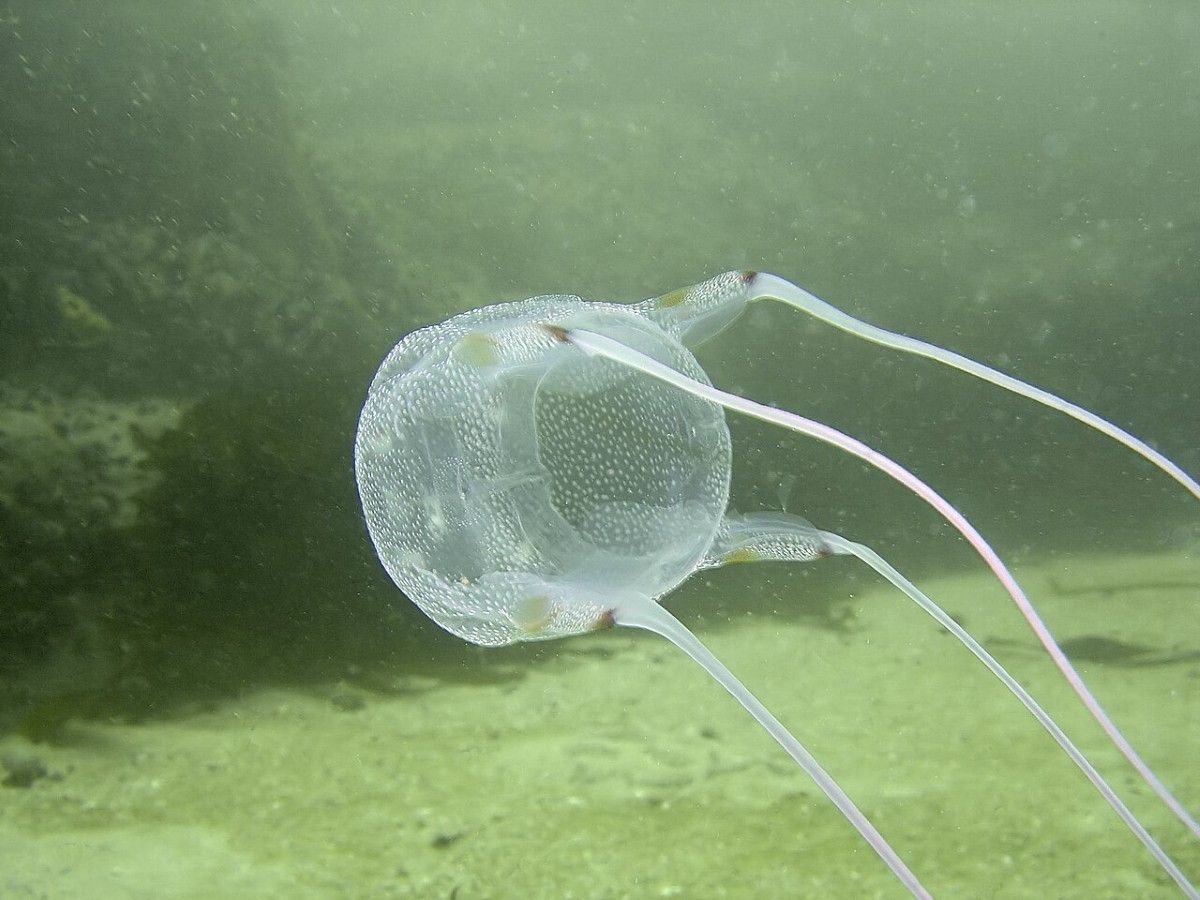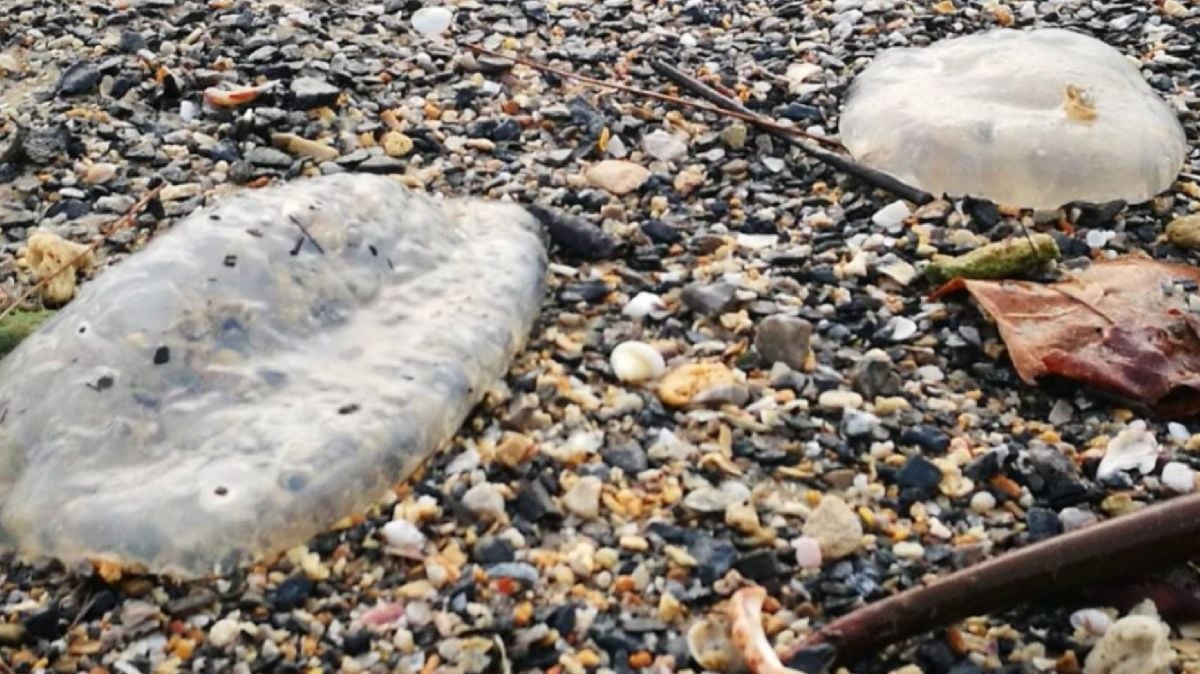Beachgoers beware: Venomous jellyfish spotted in Thai waters
Sightings of box jellyfish have been reported in Krabi, Phuket, and other popular coastal provinces

Tourists enjoying Thailand’s beloved beaches are being warned to watch out for venomous marine life, especially during the monsoon season when jellyfish and other dangerous creatures drift closer to shore.
While most jellyfish found in Thai waters are harmless. However, the venomous box jellyfish, known for their potentially fatal sting, have occasionally been spotted near popular beaches during windy, rainy months. Other sea creatures posing risks include the Portuguese man o’ war (Bluebottle), the venomous but beautiful Blue Dragon sea slug, stonefish, weever fish, and sea urchins.
Beach resorts across Thailand have stepped up safety efforts by setting up warning signs in high-risk zones. First Aid stations are available along many stretches, and in some locations, protective nets are installed to reduce the threat.
Tourists are advised to avoid swimming after heavy rain, at night, or beyond buoy-marked safe zones. Wearing protective gear such as rash guards or Lycra suits can help prevent stings. Even jellyfish washed up on the beach can still sting and should not be touched.

If stung, stay calm and get the person out of the water. Call Thailand’s emergency number 1669. Keep the victim still to reduce venom spread. Avoid using fresh water, rubbing the wound, or applying ice.
Instead, pour vinegar on the affected area for at least 30 seconds. Most beachfront resorts, dive shops, and restaurants stock vinegar, but carrying your own is wise. If symptoms include severe pain, difficulty breathing, chest tightness, confusion, or loss of consciousness, seek medical help immediately. Administer CPR if the person stops breathing until help arrives.
The Tourism Authority of Thailand reported that box jellyfish sightings have been reported in Krabi (Ko Lanta, Hat Nopparatthara – Mu Ko Phi Phi National Park), Phuket (Nam Bo Bay), Phetchaburi (Hua Hin, Cha-am), Chumphon (Ko Tao), Surat Thani (Koh Samui, Ko Pha-ngan), and Trat (Koh Mak, Koh Kut).
While these destinations remain safe and popular, swimmers should be extra cautious, especially during the rainy season.
Latest Thailand News
Follow The Thaiger on Google News:


























